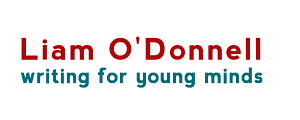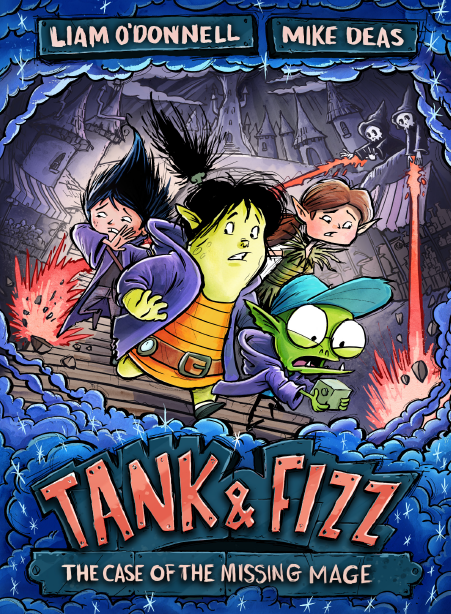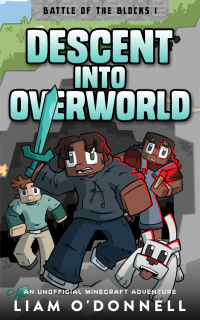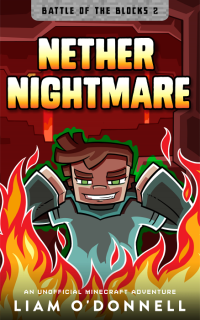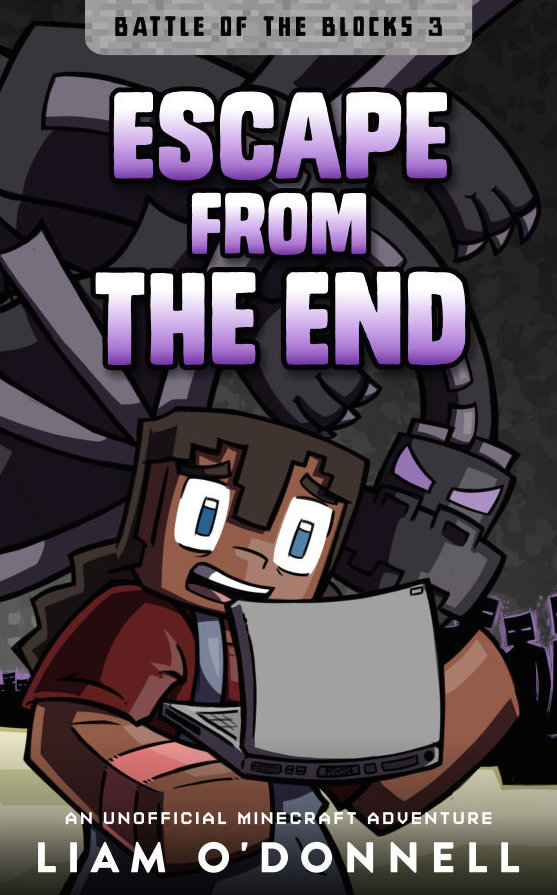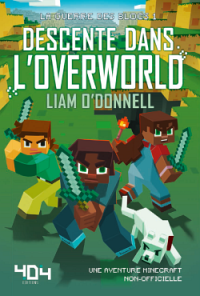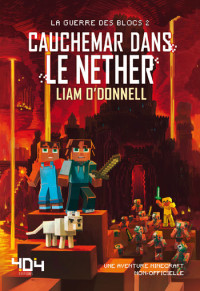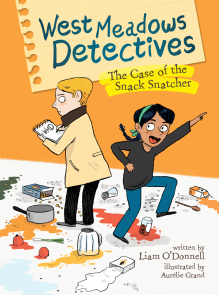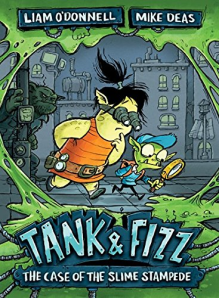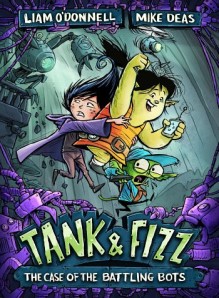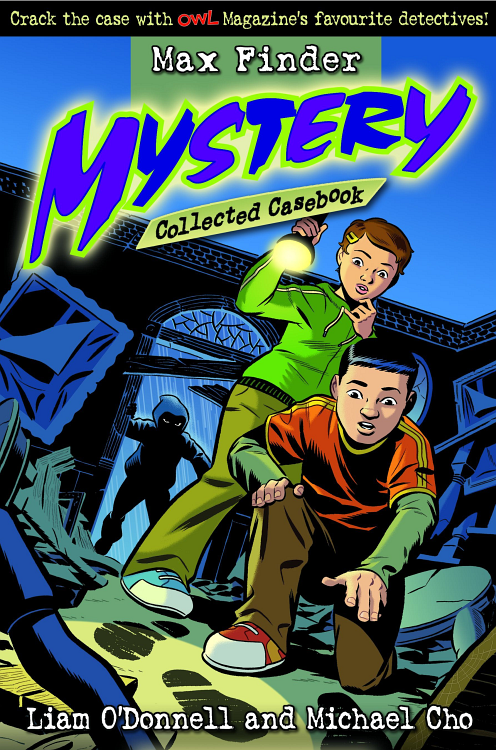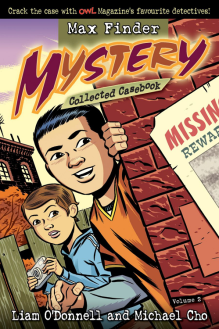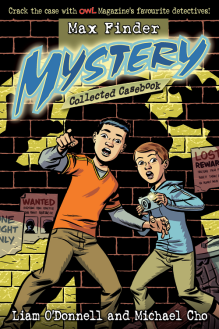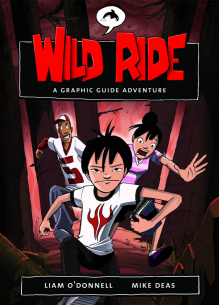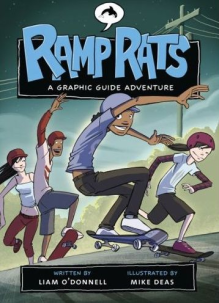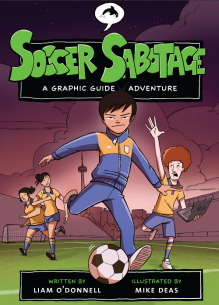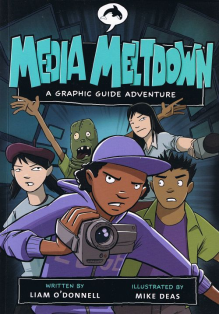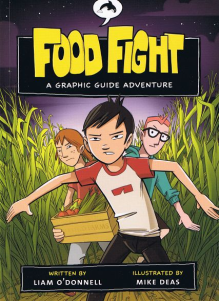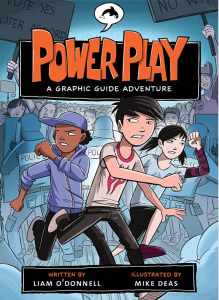 I’ve been writing professionally for nearly 20 years, but in the last year I’ve really started to have fun. And I’ve started to make real mistakes.
I’ve been writing professionally for nearly 20 years, but in the last year I’ve really started to have fun. And I’ve started to make real mistakes.
Both the fun and the mistakes are due to my experiments with self-publishing. And both have taught me lessons that I’ll be bringing into my classroom this coming school year.
If you work with young writers, these lessons in creation could prove useful.
Lesson 1: Fails Happen (and that’s awesome!)
There’s a lot of talk in education about learning from failure, like the way we get respawns when that end boss wipes us in our favourite video game. Learning from your fails doesn’t just happen in video games.
Since launching my Tech Tales series of ebooks for reluctant readers, failure has been my co-pilot.
 I was making mistakes even before I got to all the new stuff, like designing a cover and converting my story into ereader file formats. In Unplugged, Tech Tales #1, I had a character go from being a little kid, to a teenager and back to a little kid – all within an 8000 word short story!
I was making mistakes even before I got to all the new stuff, like designing a cover and converting my story into ereader file formats. In Unplugged, Tech Tales #1, I had a character go from being a little kid, to a teenager and back to a little kid – all within an 8000 word short story!
Thankfully, I caught this character’s rapid age growth before I published the story, but not until the cover was done and I was minutes away from putting it online.
Fails like that taught me the importance of triple-checking your writing and having other people read over your work before sending it out into the world.
For teachers letting your students know that even “professional” writers make silly mistakes can go a long way to building their confidence and creativity with writing.
Lesson 2: Solo Work & Teamwork Go Together
 I am, by nature a hermit. I like to work alone. Even when I’m working with a traditional publisher, like Orca Book Publishers, or partnering up with amazing illustrators, like Mike Deas on our Graphic Guide Adventures series, I mostly work alone. And that is good! Some writers (and students) prefer to work alone.
I am, by nature a hermit. I like to work alone. Even when I’m working with a traditional publisher, like Orca Book Publishers, or partnering up with amazing illustrators, like Mike Deas on our Graphic Guide Adventures series, I mostly work alone. And that is good! Some writers (and students) prefer to work alone.
However, sometimes teamwork is needed. Solo work and teamwork are not mutually exclusive. I’ve learned this lesson through self-publishing Ganked, my young adult gamer geek mystery. As the writer, I’ve worked alone, locked in my office making the mystery the best it can be. As the publisher, I’ve assembled a team of editors and cover designers to work with me to bring the novel to readers. Without them, I’d be stuck learning Lesson 1 over and over again.
As a teacher, I am going to strive to facilitate learning that creates space for students to learn independently or collaboratively. Whether that’s through parallel play or co-operative/competitive activities, I see the value in both and will try not to place a greater “learning value” on one or the other.
Lesson 3: Unknowable Outcomes = Limitless Creativity
When I write any story, I really have no idea how it’s all going to turn out. Seriously.
I often tell the story of the time I successfully pitched my Max Finder Mystery series to Owlkids. Back in 2002, they needed a new comic for their monthly Owl magazine, so I put together a proposal for a new “you-solve-it” series, a la Encyclopedia Brown. They loved it and signed me up to write it. Awesome! Except, when I left that meeting, I had no idea if I could *actually* write a “you-solve-it” series, a la Encyclopedia Brown.
Ten years, 40 mysteries and seven books later, it turns out I can (and so can, Craig Battle & Ramon Perez the creative minds behind the most recent Max mysteries.) At the time, however, those outcome were unknowable and that has led to amazing creative elements in that series I never imagined.
The same is true as I self publish a series of ebook short stories for reluctant readers and a gamer geek murder mystery for young adults. With both Tech Tales and Ganked, I have no idea what the end result will be. And I love it.
I nabbed the term “unknowable outcomes” from the amazing Jason Nolan at Ryerson University’s EDGE Lab and I aim to make it my motto for learning in the coming school year. Only when both the students and the teacher are unsure of the final results in any lesson or activity is there space for authentic learning. Whether it’s a project on ancient civilizations or a simple math lesson, if I see a predetermined “final outcome” in my lessons, I’m pulling back, referring to Lesson 1 and starting all over again.
It could be a huge success or a complete disaster. I just don’t know and neither will the students. And that’s how it should be.
Always Learning
These three lessons are just the beginning of what the new challenges of self publishing is teaching me. I know when Ganked hits online bookstores this fall, I’ll do some more failing as I try to make it stand out against the mountain of other books scrambling for readers’ attention. Along the way, those fails will definitely lead to more learning. I’ll be sure to share that learning in my classroom and right here.
In the meantime, what life lessons have you brought into the classroom? Share your learning in the comments below.
–-
As an award-winning children’s author, gamer-geek and elementary school teacher, I often have teaching ideas and writing news to share with fellow educators. I deliver these resources and ideas to your inbox in my e-newsletter Reading Change.
If this sounds like something you’d like to receive, then subscribe to Reading Change.
You can unsubscribe anytime and I won’t share or sell your data. Honest.
Thanks!
Liam
